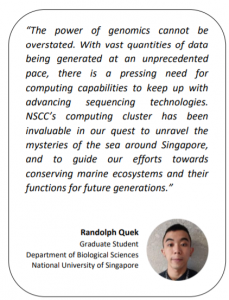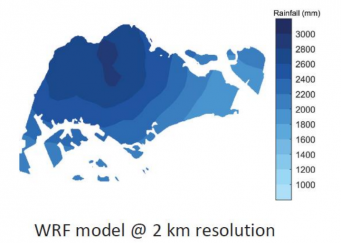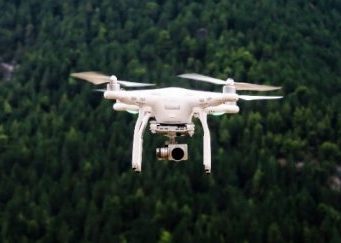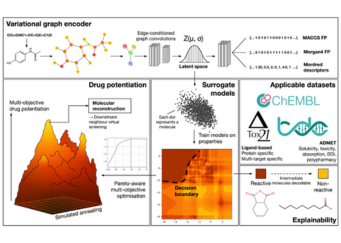The Reef Ecology Lab at NUS leverages NSCC’s supercomputing capabilities for marine genomic analyses to better understand and design solutions for marine conservation in Singapore.

Singapore is known as a shipping hub for maritime trade around the world. However, Singapore is also home to a diverse marine ecosystem which stretches along Singapore’s coastline with over 700 species of fish and 200 species of corals recorded. Local impacts and global climate change have placed coastal habitats around the world under great stress, creating urgent need for targeted conservation solutions.
With the advent of next-generation DNA sequencing, a team of researchers at the Reef Ecology Lab at NUS are looking into genomic analyses of hard corals in Singapore, using molecular techniques and cutting-edge bioinformatics. The team is tapping onto NSCC’s high performance computing resources to employ advanced genomic and sequencing technologies to characterise the biodiversity and adaptive capacity of marine ecosystems. The application of high-throughput sequencing is central to a wide range of marine genomic research—from characterising microorganisms and their functions to tracking megafauna such as sharks and dolphins by sequencing their DNA from environmental samples, or “eDNA”.
Genomic analyses also provide the necessary tools to test species’ responses to local and global stressors and, more fundamentally, reconstruct species histories and their responses in the past. These analyses yield precise projections about the habitats of the future and valuable insights for devising strategies to improve their outcomes.
To find out more about the NSCC’s HPC resources and how you can tap on them, please contact [email protected].
NSCC NewsBytes April 2021
Other Case Studies
Enhancing Weather Prediction in Singapore: Leveraging Climate Model Simulations for Precision
Researchers from NUS Tropical Marine Science Institute are leveraging supercomputing to fine-tune Weather Research and Forecasting (WRF) Model and downscale hundreds of years of...
Keeping drones safe in urban airspaces
Researchers from NTU tap on high performance computing to identify hazardous airspaces through urban weather simulations in order to facilitate effective route planning and...
Advancing Drug Discovery Research using NSCC HPC resources
Researchers from Nanyang Technological University (NTU) are applying variational graph encoders as an effective generalist algorithm in computer-aided drug design (CADD)....


